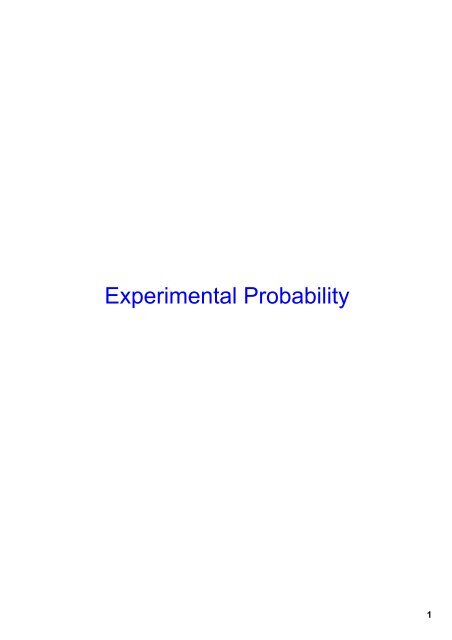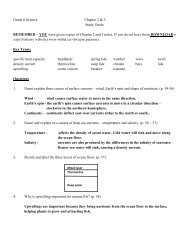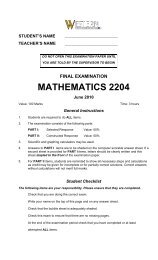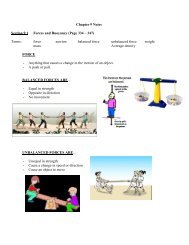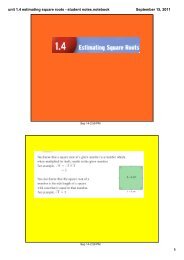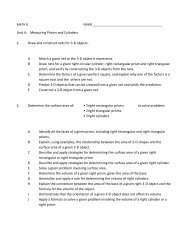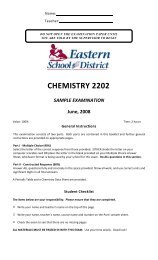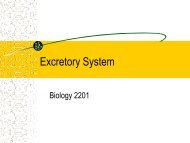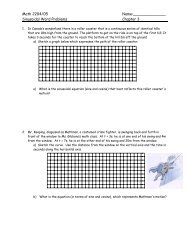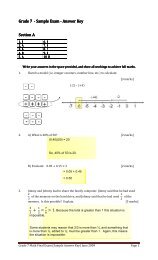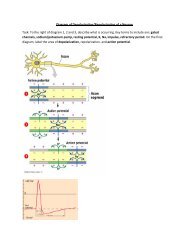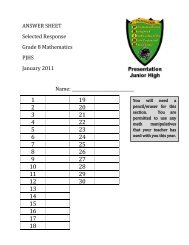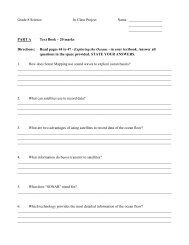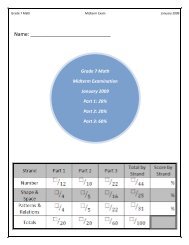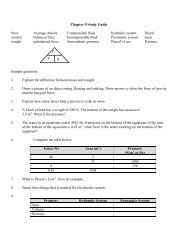unit 7 Experimental Probability-notes.pdf
unit 7 Experimental Probability-notes.pdf
unit 7 Experimental Probability-notes.pdf
Create successful ePaper yourself
Turn your PDF publications into a flip-book with our unique Google optimized e-Paper software.
<strong>Experimental</strong> <strong>Probability</strong><br />
1
Theoretical probability of an event is the ratio of<br />
the number of favourable outcomes in an event to<br />
the total number of possible outcomes, when all<br />
possible outcomes are equally likely.<br />
It can only be used to predict what will happen<br />
in the long run, when events are equally likely to<br />
occur.<br />
2
<strong>Experimental</strong> probability is the ratio of the number<br />
of favourable outcomes in an event to the number of<br />
possible outcomes ﴾sample space﴿ observed in<br />
simulations and experiments.<br />
The experimental probability of an event Y is:<br />
3
The probability in many situations cannot be<br />
characterized as equally likely, such as tossing<br />
a thumb tack to see if it lands with the point up<br />
or down, and therefore, theoretical probability is<br />
more difficult to determine. In such cases,<br />
experiments may be conducted to identify the<br />
probability.<br />
Before conducting experiments, you should predict the<br />
probability whenever possible, and use the experiment to<br />
verify or refute the prediction.<br />
4
Conclusions<br />
7
• The probability of an event and its complement<br />
will add up to 100% or 6/6 (1).<br />
• The complement of an event is the<br />
probability of that event not occurring.<br />
ex. P(heads) the complement is P(not<br />
tossing heads).<br />
• The more trials you do the closer the<br />
experimental probability will be to the theoretical<br />
probability.<br />
8


